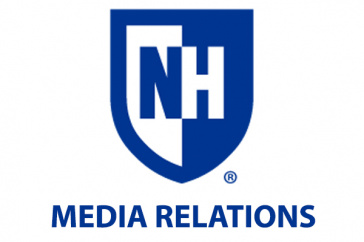The University of New Hampshire is a flagship research university that inspires innovation and transforms lives in our state, nation and world. More than 16,000 students from all 50 states and 71 countries engage with an award-winning faculty in top ranked programs in business, engineering, law, health and human services, liberal arts and the sciences across more than 200 programs of study. UNH’s research portfolio includes partnerships with NASA, NOAA, NSF and NIH, receiving more than $100 million in competitive external funding every year to further explore and define the frontiers of land, sea and space.
UNH Research Finds Pay-As-You-Throw Trash Policies Cut Solid Waste Disposal

DURHAM, N.H.—Towns that have implemented pay-as-you-throw and other user fee-based pricing policies to reduce municipal solid waste have seen a substantial reduction in trash disposal rates, some by more than 50 percent, according to new research from the New Hampshire Agricultural Experiment Station at the University of New Hampshire.
“Households respond to economic incentives,” said John Halstead, professor of natural resources and the environment. “With unit-based pricing, the cost to the household may increase to dispose of trash, but the incentive to recycle is greater.”
Researchers evaluated the impact of municipal solid waste disposal programs for 180 towns that account for 90 percent of New Hampshire’s population. Of the 180 towns, 34 had pay-as-you-throw trash disposal programs, which commonly require households to buy and use specially designated garbage bags. Other types of programs require households to purchase stickers to place on commercially sold trash bags.
The 34 towns with trash unit-based pricing fees saw municipal waste disposal rates drop between 42 to 54 percent compared to towns without such programs. This represents an annual reduction of household waste of 631 to 823 pounds of trash. The average annual household waste of towns without unit-based pricing fees was 1,530 pounds of trash.
Towns with pay-as-you-throw programs had lower median household incomes, higher residential property tax rates, and higher home values in comparison with towns without such programs.
“When waste disposal is financed with property taxes, disposal costs for households with more trash are subsidized by households disposing of less trash,” said Halstead. “When cities and towns adopt unit-based pricing, households that generate less waste will pay less than households that generate more waste. Thus, these types of user-fee programs appeal to households that actively practice recycling.”
Municipal solid waste management costs account for an increasing share of local governmental expenditures. The cost increase is attributed to rising levels of per-capita waste disposal, growing populations, and increasing costs of collecting, transporting, and disposing of solid waste. In addition, for many communities, solid waste is being transported longer distances to larger regional landfills and incinerators, as local smaller landfills reach capacity.
“When waste disposal services are financed from general tax revenues, households incur no direct cost for municipal solid waste services,” said Halstead. “The marginal cost for each additional unit of trash disposed is zero. If households are required to use designated trash bags for waste disposal, the marginal cost is the sale price of the trash bag.”
Prices vary across municipalities and typically range from $1 for a 15-gallon trash bag to $2 for a 30-gallon trash bag, with a 30-pound weight limit.
This research is presented in the journal Agricultural and Resource Economics Review. Ju-Chin Huang, professor of economics at UNH, and Christopher Wright, adjunct professor at Montana State University, also assisted in the research.
This material is based upon work supported by the NH Agricultural Experiment Station, through joint funding of the National Institute of Food and Agriculture, U.S. Department of Agriculture, under award number 1015411, and the state of New Hampshire.
Founded in 1887, the NH Agricultural Experiment Station at the UNH College of Life Sciences and Agriculture is UNH’s original research center and an elemental component of New Hampshire's land-grant university heritage and mission.
-
Media Contact
Lori Tyler Gula, PhD | NH Agricultural Experiment Station | lori.gula@unh.edu | 603-862-1452
Latest News
-
December 4, 2025
-
November 26, 2025
-
November 6, 2025
-
November 5, 2025
-
October 24, 2025














































